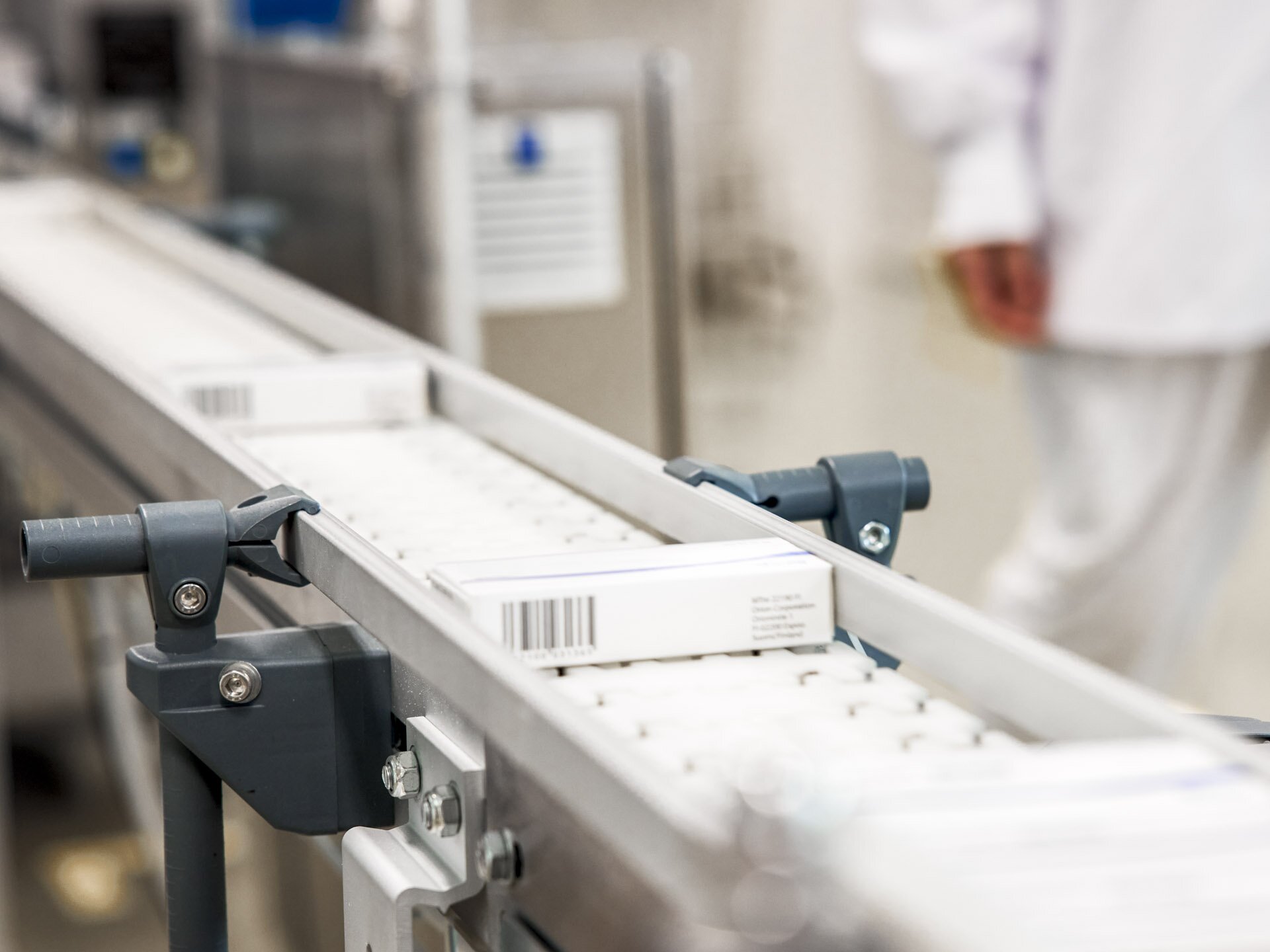Huge breakthroughs have been made in various areas of cancer research in recent years. Our understanding of the cancer genome has improved and diagnostic methods have become more sophisticated. Cancers have also been completely cured with immunological therapies that teach the body’s own immune defence system to destroy cancer tumours.
“Our understanding of cancer initiation and progression has improved, and we have also learnt more about cancer genetics, human immunology and diagnostics. Information has accumulated over recent years, and AI will now make it possible to utilise the vast repositories of data. When all this data is combined, we will have the opportunity to identify and understand completely new things about cancer,” says Outi Vaarala, Head of Innovative Medicines and R&D at Orion.
Breakthrough 1: Personalised cancer treatment improves outcomes and reduces side effects
There are about five hundred cancer genes, and they can have one to five different combinations. This means that no two cancers are the same, which is why cancer treatment is becoming increasingly personalised. Even now, the goal is to provide the right treatment to the right patient at the right time.
Personalised cancer treatment is based on genetic and molecular information about the patient, cancer profiling and increasingly refined diagnostic methods. The need for drug therapies, surgery and radiotherapy is determined on an individual basis, which improves treatment outcomes and reduces side effects.
“We have a better understanding of the drivers of cancer tumour growth. Each individual has a slightly different cancer driver, but once it is known, we can target the specific driver,” says Vaarala.
Fortunately, personalised cancer treatment does not have to mean a personalised cancer drug for every individual, even if the treatment and combination of drugs are different. In fact, similar cancer drivers can be found in several different cancers.
Similar drivers have been found in lung cancer and colon cancer, for example. In the future, cancer treatment will no longer be fixed on the indication, i.e. the specific type of cancer, but on the genetics of the cancer tumour.
Breakthrough 2: Immunological cancer treatments harness the human immune defence system to fight cancer
In immunological cancer treatment the body’s own immune defence system is strengthened to fight cancer. Instead of targeting the cancerous tumour itself, the treatments affect the immune defence cells, which are triggered to destroy the cancer cells by an active ingredient.
“The ‘brakes’ that prevent the body’s own white blood cells from destroying the cells of the cancer tumour in question are removed. Once they are removed, the white blood cells know how to destroy the cancer tissue,” says Vaarala.
Immunological cancer treatments have been used for cancers such as melanoma and lung, kidney and bladder cancers. In the best case, the cancer is completely destroyed and will not recur. The problem with immunological treatments, however, is that they only help a minority of cancer patients.
“This tells us that the body’s immune defence system plays a key role in defeating cancer tumours and that essential brakes are yet to be found.”
Immunological cancer research has now identified indicative biomarkers whose presence in cancer tissue suggests a higher probability of success in immunological therapy.
Orion’s immunological cancer research is focusing on finding second-generation immunological therapies, in other words, helping those patients that have not been helped by current immunological therapies.
Breakthrough 3: Artificial intelligence opens doors to a new kind of cancer research
Cancer research is becoming increasingly complex. Data is accumulating faster and faster, and larger capacity than that of a human brain is needed to gather and analyse it. So far, it has been impossible to put the accumulated data to effective use, let alone combine it to create new innovations.
Artificial intelligence is introducing big data analytics to cancer research.
“AI can wade through huge amounts of patient and research data, looking for different drivers of cancer, genetic changes and biomarkers, and then make predictive models. The models give us new ideas for new drugs or combinations of drugs,” says Vaarala.
The future of cancer treatment looks promising
As recently as two decades ago, cancer treatment was still just a way of giving patients more months to live. While a cancer diagnosis may still be a bleak diagnosis, cancer treatment has developed in leaps and bounds.
In the future, cancer treatment may resemble that of any chronic disease. In addition, the methods of early detection are constantly evolving. In the future, screening for cancer biomarkers in blood samples may be commonplace.
“If a pre-cancerous stage is detected, the diagnosis may no longer be such a shocking event, and the patient may be given immunological treatment to boost their immune system, for example. This will destroy the cancer cells before they develop into a tumour or cancer,” Vaarala says.











